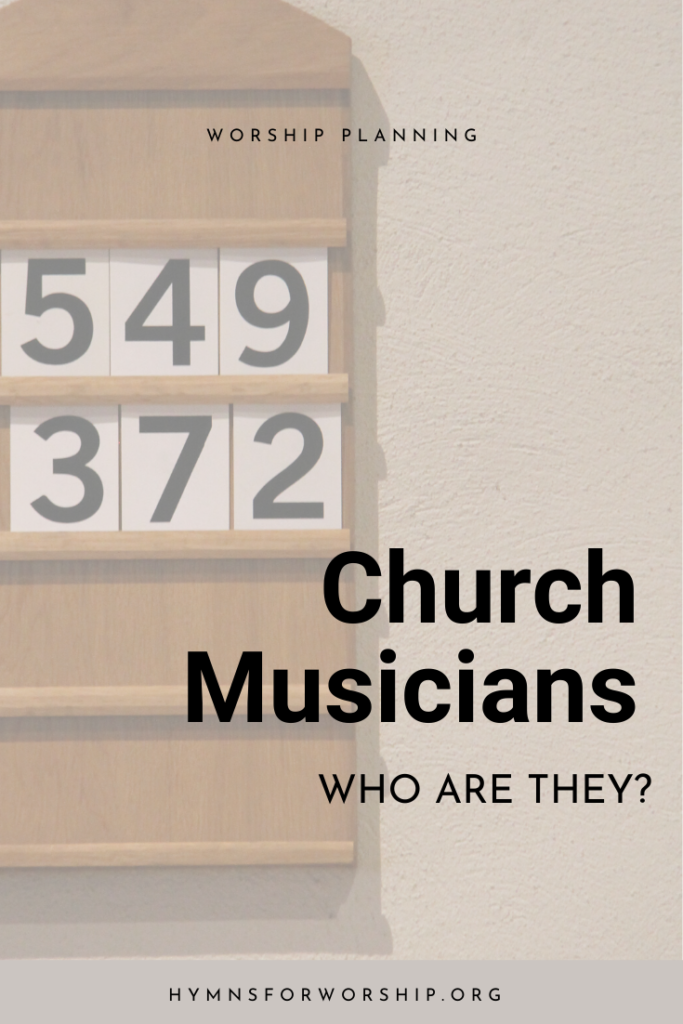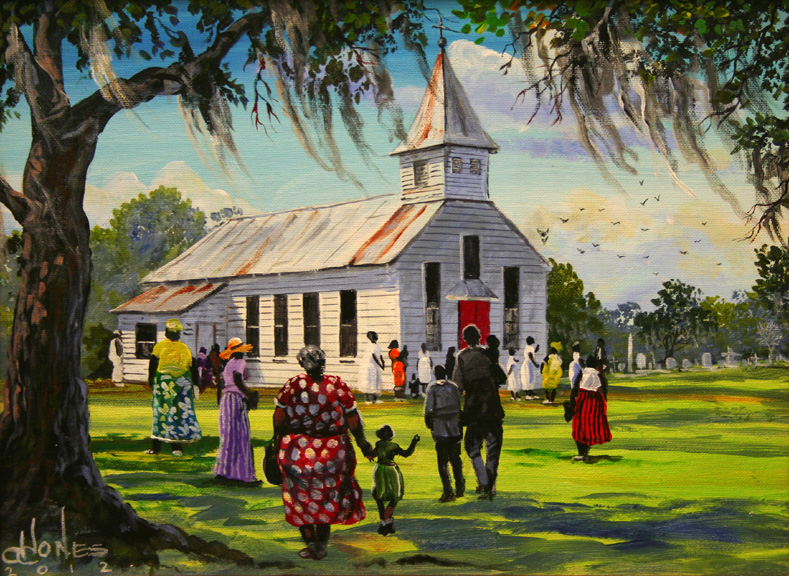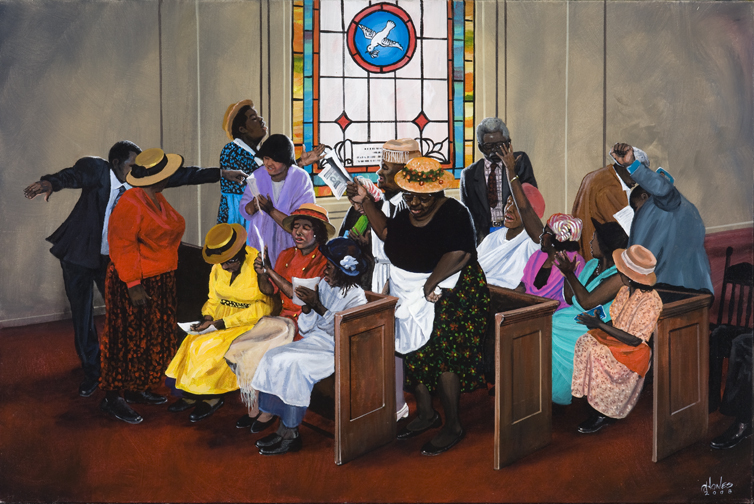Across the world, a remarkable group of church musicians lead about 25 million people in song at worship every Sabbath. These musicians are called music ministers, music coordinators, organists, pianists, soloists, song leaders, choir directors, instrumental ensemble directors and a variety of other names.

Sometimes they have no title and just volunteer their talents and gifts. Some of them have degrees, doctorates even, and have spent a big chunk of their lives practicing and honing their craft. Other have little or no training at all, but just willing to use whatever abilities they have.
Whatever background they have, here are some general ideas about who church musicians are.
- Someone who holds leadership in the church assembly through their musical capabilities.
- Someone who spends time and effort (and even professional training) as much as the pastor in making sure that corporate worship is done right.
- Someone who may not have had the professional training in music but are very sensitive to the role music plays in worship. They have a keen taste in music and knows when it is done right. They willingly volunteer their time, effort and even money to help out musically, via rehearsing with the choir or instrumental ensemble, even taking music lessons.
- Someone who is a professionally trained musician, but can never look to playing for the church as a main source of income. A professional church musician almost always moonlights — or look for money at the side, therefore making his/her main skill a part-time job or even voluntary with no remuneration.
- Someone whose role is as valuable and needed as the pastor yet most people think anyone can fill their spot, as long as that church member knows a little about music.
- Someone who seeks to be musically trained, or seeks to establish musical training for church members with the purpose of enhancing corporate worship.
- Someone who does not have the trappings and aura of a snobbish concert artist or a pop star, but still performs with skill and superb musicality, or at the very least, to the very best of their ability.
- More importantly, someone who has a sense of their own faith and has an idea of where they are in their own pilgrimage. They also know the doctrines and beliefs of the church they serve in and is able to use music to empathize with the believer’s worship experience.
Roles most church musicians fill:
- The Music Coordinator. Or the minister of music, for want of a better title, especially for those who have a (church) music degree. This person is responsible for distributing the musical parts in worship to different people and makes sure someone is there to lead musically. If not, then they stand in the gap. Most of the times tho, they wear all the musical caps I’m about to mention below. However, in smaller, low-budget churches, almost anybody will be asked to fill in this role. (Gasp).
- The Organist. Alas, not all churches have them. But when they are, the organist shares an equal role with the song leader in leading congregational singing. They also fill in gaps in worship with solemn music to make the heart more susceptible to meditate. They practice 10 hours getting the postlude right, just to play it at the time when people couldn’t care less. In most cases, they only come to worship for the second service a.k.a. ‘Divine Worship.’ If your church has an organist that is present for all parts of the worship, hug ‘em. They’re rare.
- The Pianist. The next best thing you can get if you don’t have an organist. They’re often required to know certain skills like sight-reading (to accompany singers and instrumentalists who didn’t take the time to practice with the pianist), modulating or transposing (for the finicky soloist), improvisation and playing by ear (for the times the pastor announces an appeal song that is not in the hymnal). In the absence of the organist, then they fill in on all those silent gaps, too. The Pianist can be that mom with 4 kids, that surgeon that finally found the time to be in church because they are not on-call, that college student that is home for summer break, or even that grandma who loves to hug and kiss everyone in church.

“Gullah Country Church” Original Acrylic on Canvas by John W. Jones
- The Song Leader. Front and center, leader of congregational singing. They come armed with tidbits of inspiration, bursts of infectious energy, and a great voice that can lead an army just so the church members can sing with gusto. They have mastered grouping certain hymns together in such a way that they all relate to each other, resulting in a song service that is lively and meaningful. They share relevant quotes, short stories, and testimonies in-between hymns that help the congregation sing with understanding. Or, maybe not. Because many times, they come unprepared, asked the last minute, or do not understand the role they play in worship.
- The Choir Director. Wows the congregation every now and then with the church choir’s stellar performances of Handel’s Messiah or Rutter’s Gloria every Christmas. Always on the lookout for church members who can sing. He/she spends about 10 (mostly unpaid) hours every week rehearsing with the choir, and another 10 hours arranging four-part harmony for the church anniversary theme song, hunting for the most appropriate choir music his/her choir can sing for special worship services or planning the next choir rehearsal.
- The Choir. They are, in many capacities, lead out in singing. When singing with the congregation, theirs are the voices that ring out. They are sure about their notes, and occasionally bring congregational singing up a notch with transcending obligatos and lush harmonies. They epitomize unified singing and helps the worshipper’s heart to praise. The choir consists of senior citizens, the musician wannabes, moms, dads, professors, doctors, music and non-music professionals, students, cripple, blind, choir-member-since-birth, just-for-the-love-of-music people who passed the audition and can, at the very least, carry a tune and keep their promise to be present in rehearsals and appointments.
- The Soloist. That sweet melodious voice right before or after the sermon. Or that in between Mission Story and Welcome Remarks. Out of all the music played and sang during the worship service, these soloists get to have their slot labeled, “Special Music.” What makes it more special than all the other music in worship, I don’t know. In many cases tho, this is when music becomes performance-centric rather than worship-centric, inducing members of the congregation to clap and (whether they know it or not, and whether they said Amen or not) adore the singer more than the One the singer sang about. When done right, they prepare and open the heart for the Word of God.

“Campmeeting” Original Acrylic on Canvas by John W. Jones
- The Instrumental Ensemble. Only churches with a great budget can afford them. Or if the church has several musically talented members who are willing to put the time and effort to form a group and practice together. When they participate, the singing and music-making are fuller and more fulfilling.
- The Instrumental Ensemble Director. On his own, he’s the rarest musician to find in church. But most likely, this role is also fulfilled on the side by either the choir director, the music coordinator or the organist.
Church musicians have the most unique role in the music world. They try their best to defy that unspoken presupposition that musicians are entertainers. While most musicians readily accept the glory and praise to themselves, church musicians seek to channel this praise to God.
Church musicians have the most unique role in the music world. They try their best to defy that unspoken presupposition that musicians are entertainers. While most musicians readily accept the glory and praise to themselves, church musicians seek to channel this praise to God.Click To TweetOn top of that, they are a class of musicians who is the most underpaid, or worse, do not deserve to get paid (according to many people I have met)! A doctor who trains for a number of years expects to be paid when he does his job, as do other professions. But a trained musician is expected to come with a spirit of volunteerism if playing for the church.
These are general observations, and most of the time I am speaking based on my own experiences. The case may be different for you. But one thing is for sure. Music is a part of worship, just like breathing is a part of life. And if we seek to give the kind of worship God deserves, then we should strive to make music that He also deserves. And from a church musician to another church musician, we just want to make sure that happens.
Like this article? Share it!


